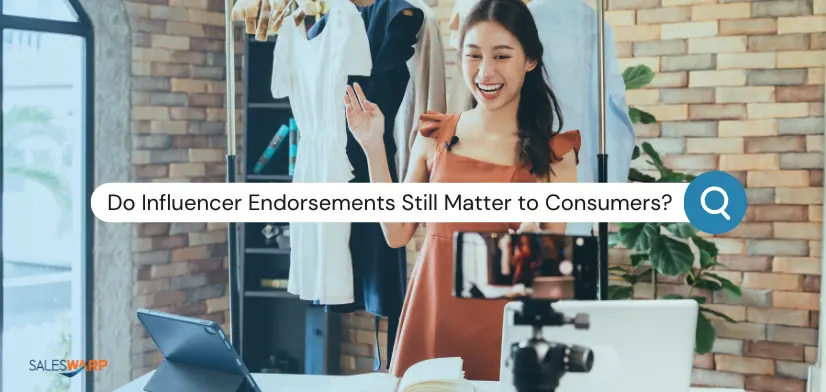Do Influencer Endorsements Still Matter to Consumers?

Five years ago, influencers were set to be the future of marketing— they were opinion leaders who could sway consumer behavior and make brands viral. They offered a new, engaging way to reach audiences, leveraging their personalities and personal connections to deliver marketing messages that felt less intrusive and more relatable. But as consumers have become more skeptical of influencer endorsements and social media has become saturated with new stars, the question arises- Do Influencer Marketing Strategies Still Work?
From Authentic to Overexposed
The influencer marketing landscape has drastically changed. Initially, influencers were celebrated for their authenticity and relatability, offering a refreshing alternative to traditional advertising. Their recommendations felt like trusted advice from a friend rather than a sales pitch. But, as brands flocked to influencers to capitalize on their reach, the market became oversaturated. Influencers, once seen as genuine voices, are now perceived by some as the new celebrities—promoting products for a fee, often at the expense of their authenticity.
This oversaturation has led to consumer fatigue. Audiences are becoming increasingly skeptical of influencer endorsements, questioning the sincerity behind the promotion. The constant barrage of sponsored content has diluted the perceived trustworthiness of influencers, leading many consumers to wonder if endorsements are driven more by monetary gain than genuine belief in the products. As a result, the effectiveness of influencer marketing is being called into question.
The Rise of Micro-Influencers: A Return to Authenticity?
In response to this shift, many brands are turning to micro-influencers—content creators with smaller but highly engaged followings. Unlike larger influencers, micro-influencers are often perceived as more relatable and authentic, their content less polished and more genuine. According to surveys, 82% of consumers are more likely to follow a micro-influencer recommendation than more prominent influencers. They tend to foster closer connections with their audiences, who see them as peers rather than celebrities.
Micro-influencers are seen as more valuable in the current market. They provide brands with access to niche, highly targeted audiences, and their perceived authenticity helps rebuild consumer trust. This trust translates into higher engagement rates and, potentially, better conversion rates for brands looking to drive sales. Micro-influencers are most effective in niche markets where their expertise and passion for a topic resonate more deeply with audiences. This kind of engagement is hard to achieve with larger influencers, who often have more diverse, less targeted followings.
Organic Viral Moments vs. Paid Promotions
Another challenge facing influencer marketing is the rise of organic viral moments. Consumers are increasingly drawn to content that goes viral organically—moments that feel spontaneous and genuine rather than staged or paid for. In an era where authenticity is highly valued, the appeal of content that appears unforced and naturally engaging cannot be underestimated. While paid promotions remain a staple of influencer marketing strategies, their impact is often overshadowed by the authenticity of organic viral moments.
For brands, this shift highlights the importance of creating content that feels natural and engaging rather than overly promotional. The challenge is balancing the need for strategic promotion with the desire for authenticity. Brands need to work more collaboratively with influencers to create content that aligns with both the influencer’s personal brand and the brand’s marketing objectives without feeling forced or inauthentic.
The Future of Influencer Marketing
Brands need to rethink their influencer marketing strategies. The future of influencer marketing will depend on a return to authenticity. It’s no longer enough to rely on influencers for broad reach alone. Brands must be more strategic, selecting partners who genuinely align with their values and resonate with their target audiences. The focus should be on building long-term, authentic relationships rather than one-off promotional deals. Brands should consider diversifying their approach by combining influencer partnerships with other marketing strategies like incorporating more user-generated content, prioritizing community building, and direct engagement with their audience
Learn how Livestream commerce is impacting the marketing landscape.
Read the blog: https://www.saleswarp.com/impact-of-livestream-commerce-blog/
